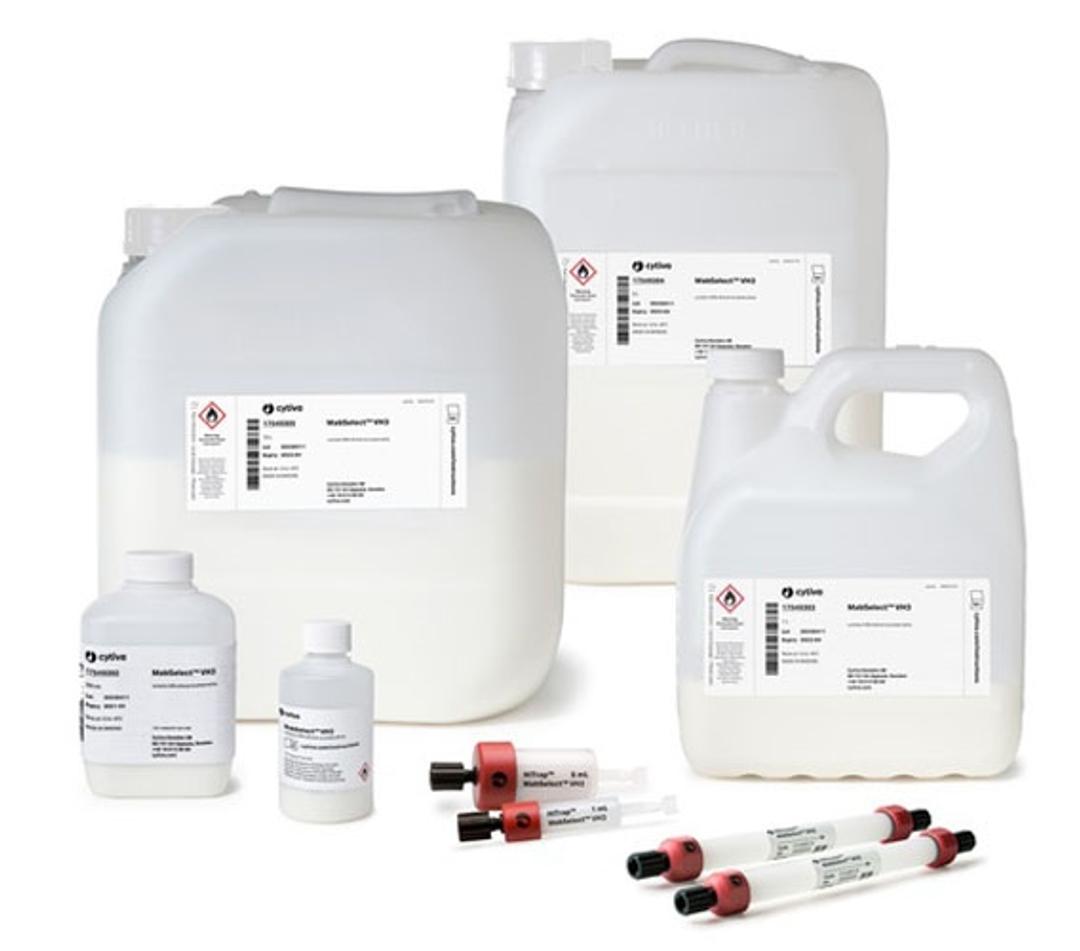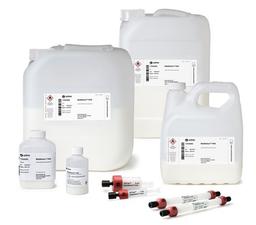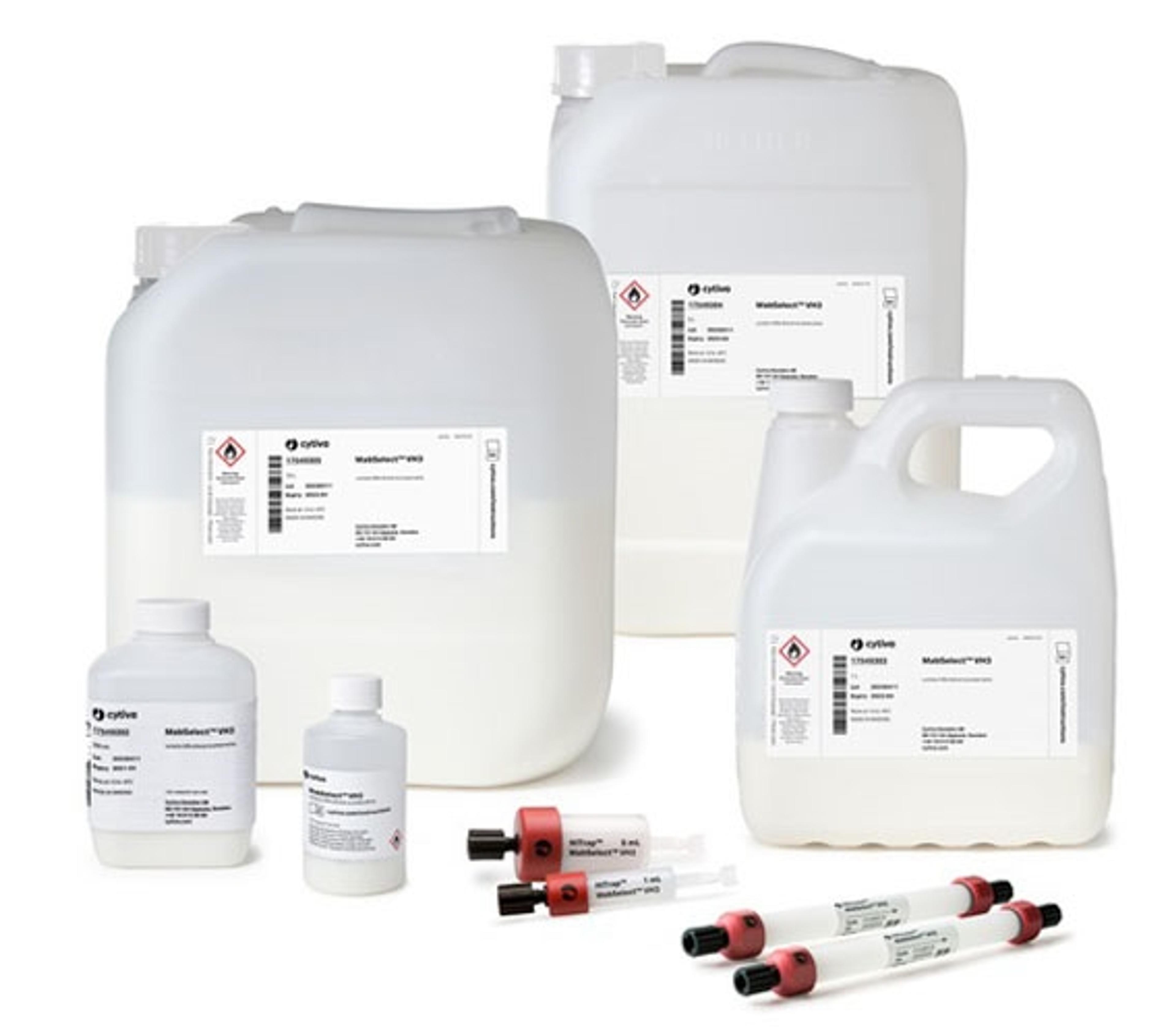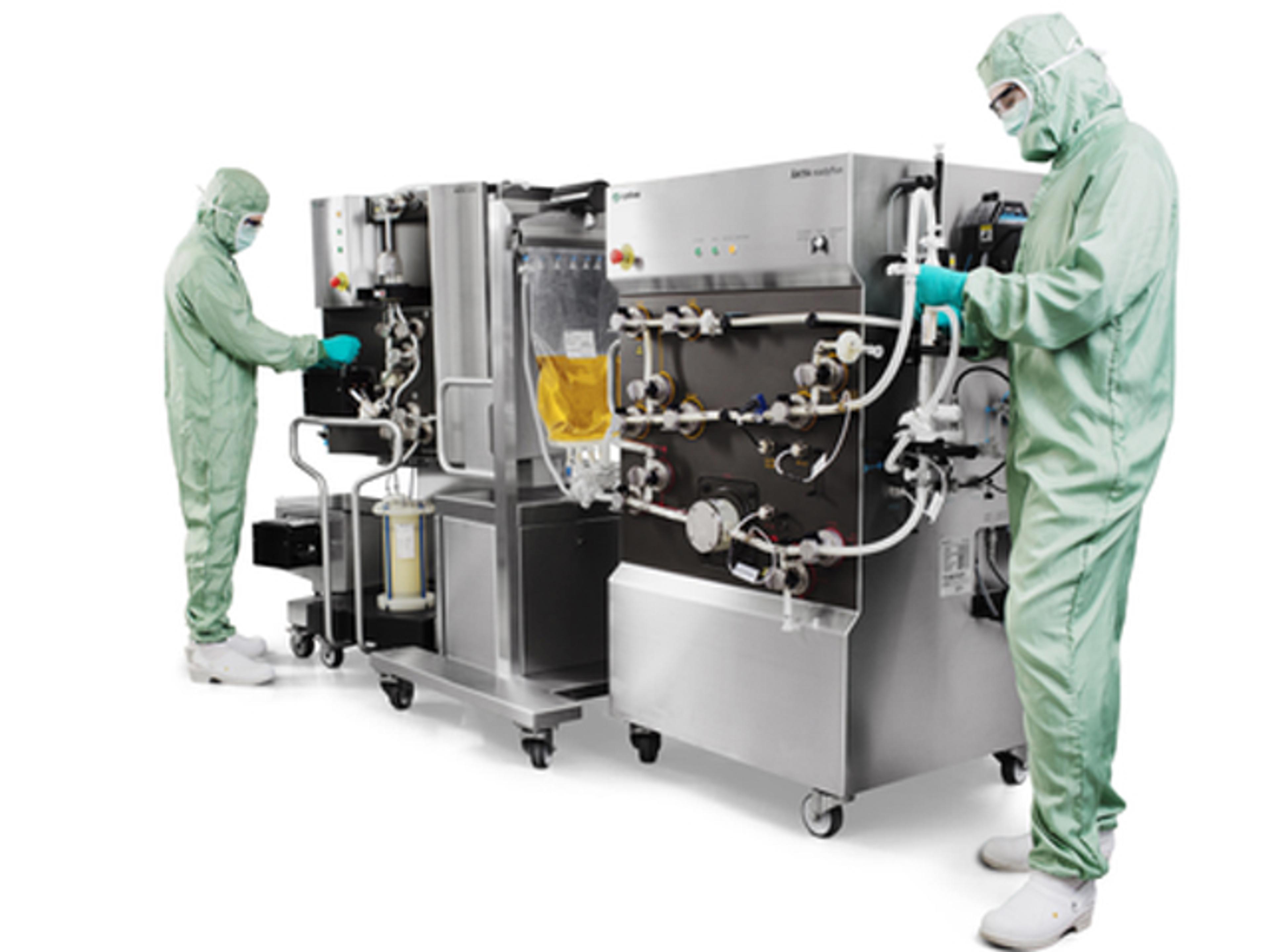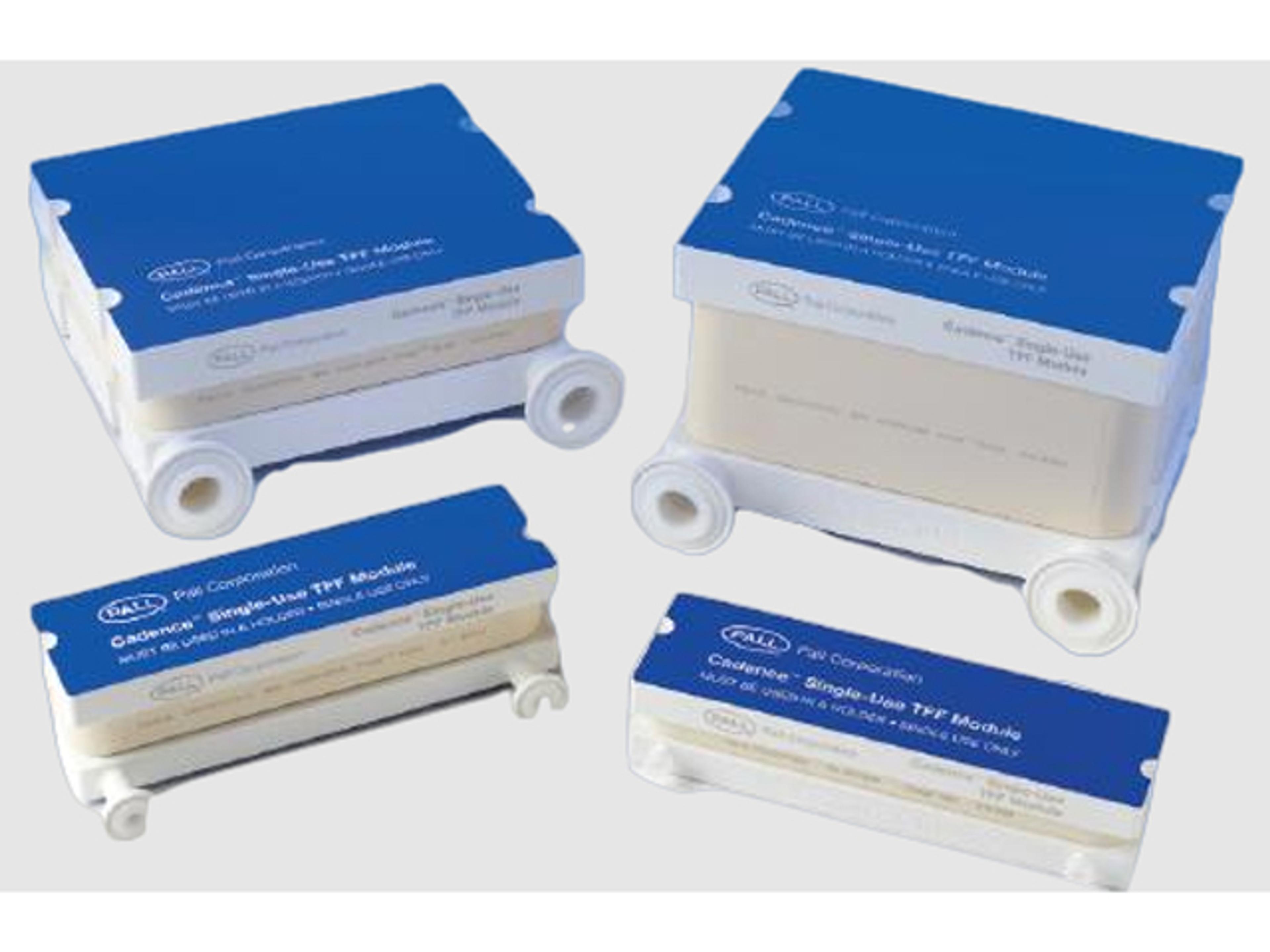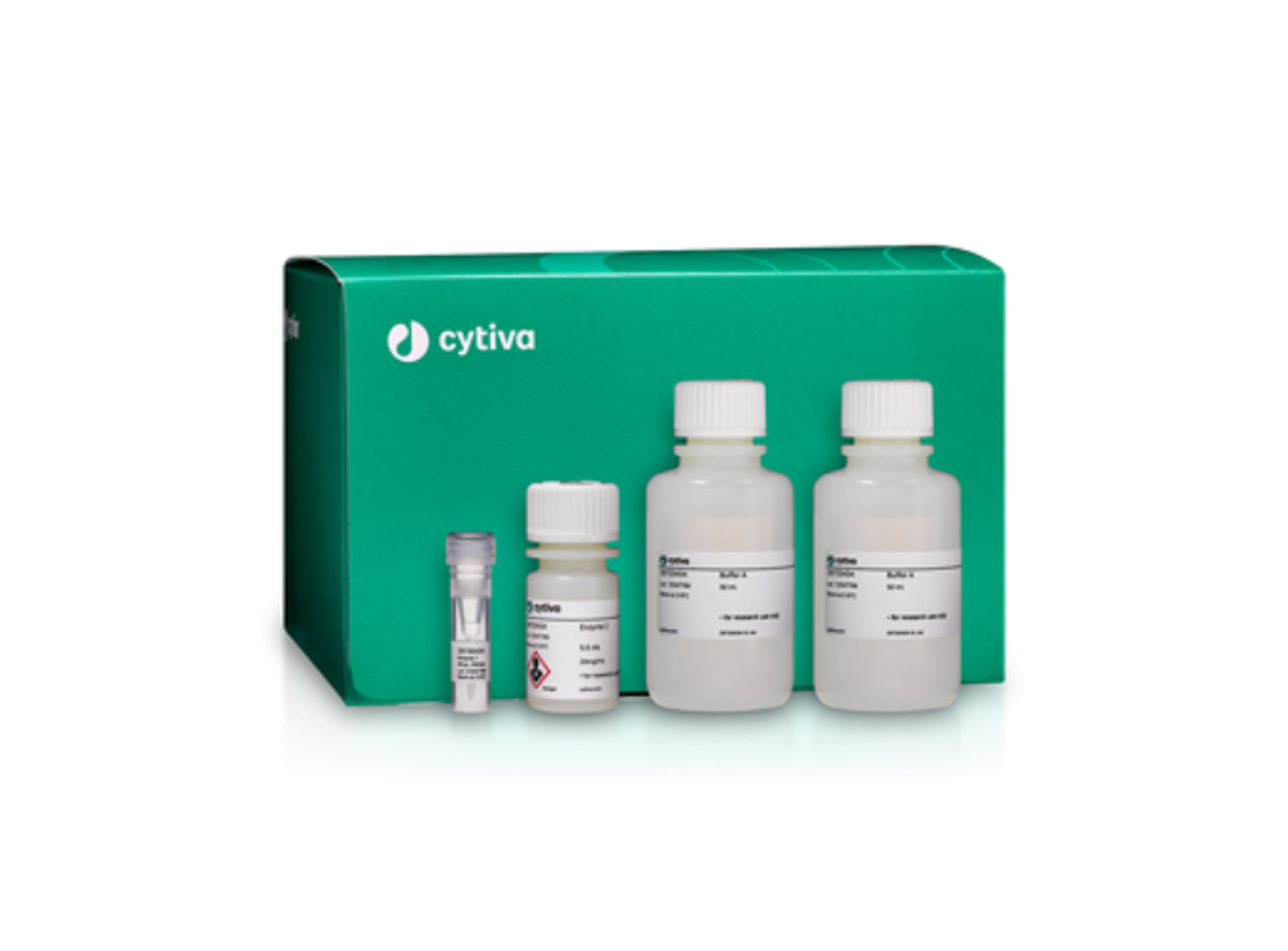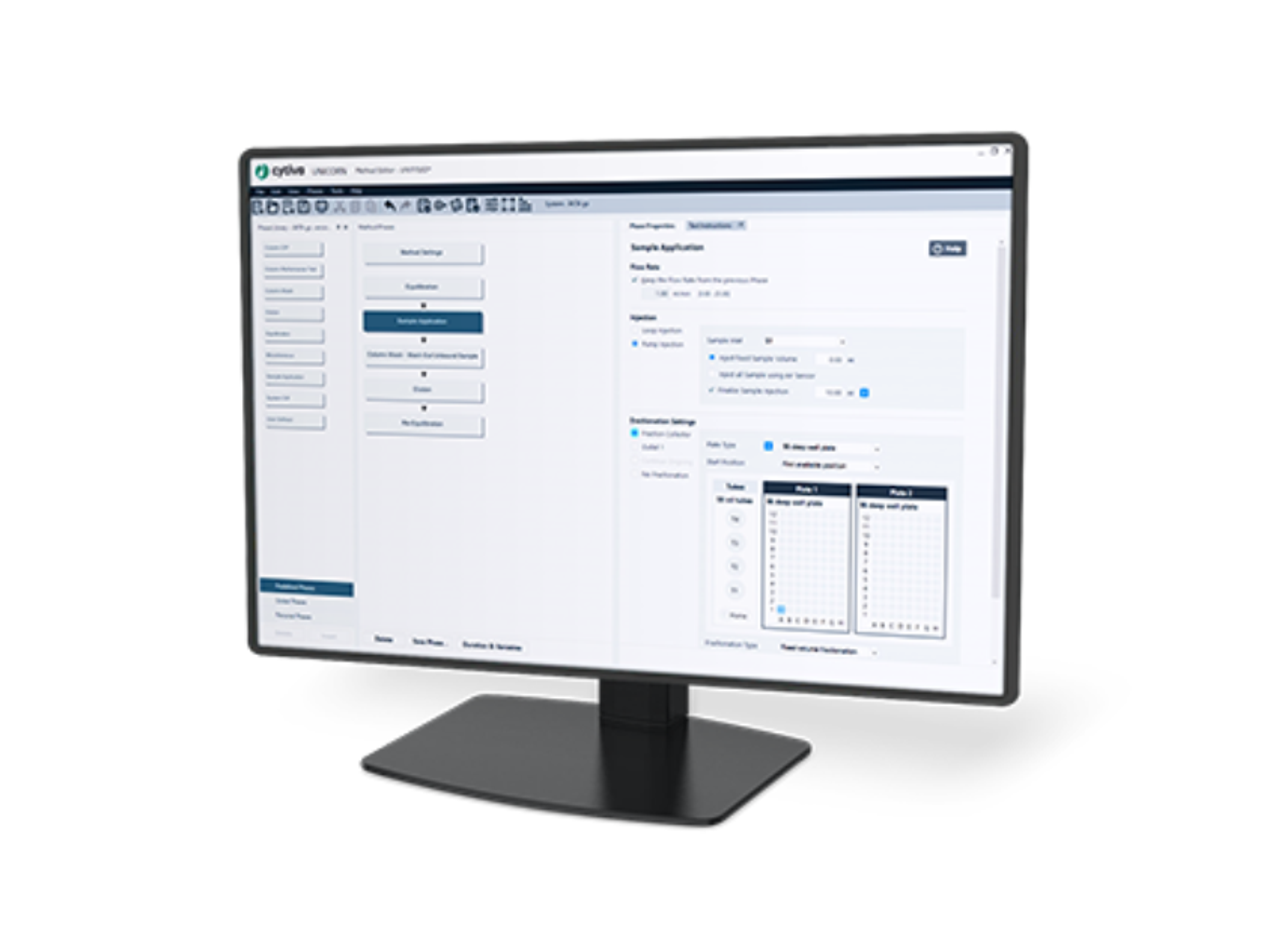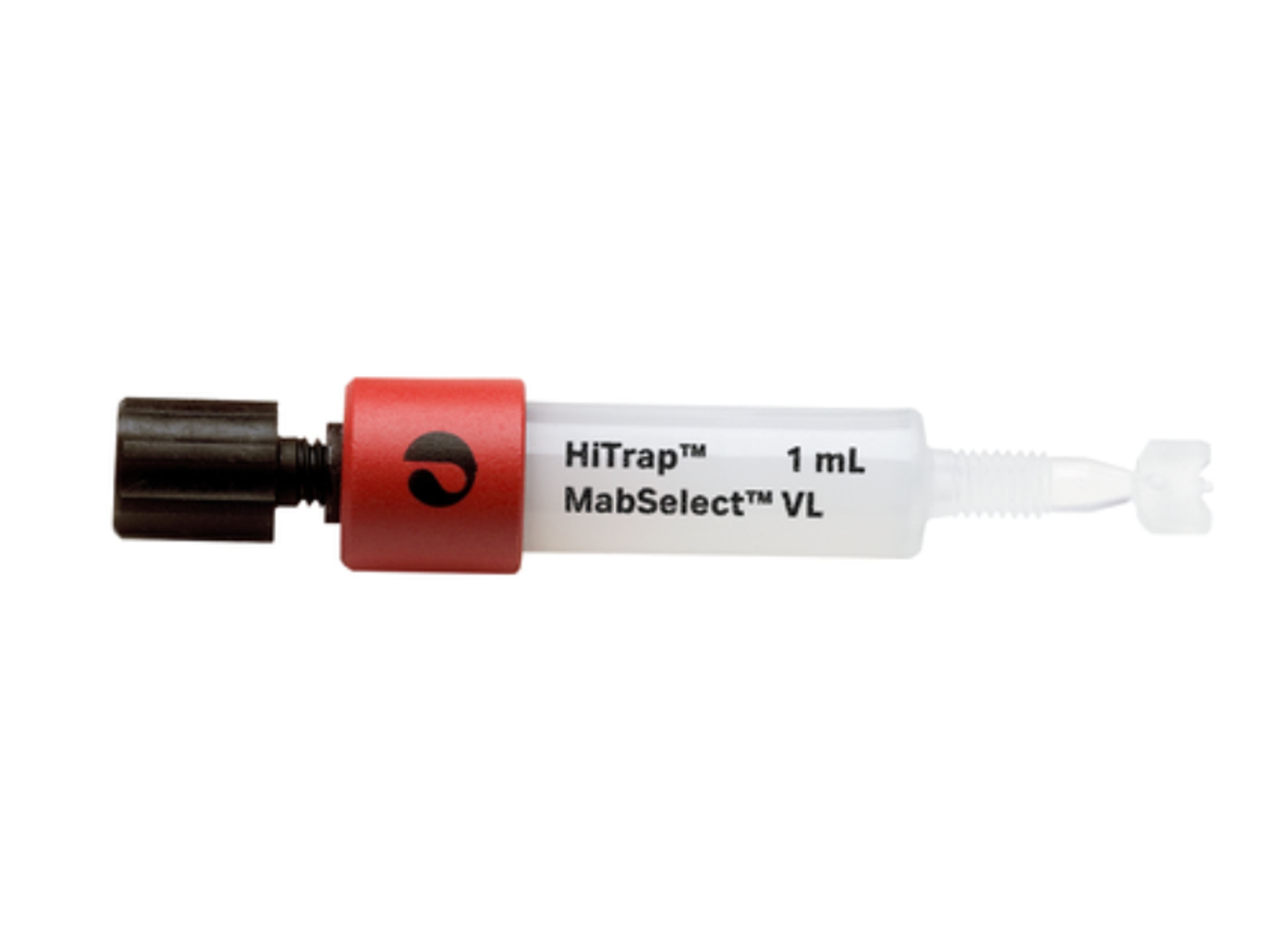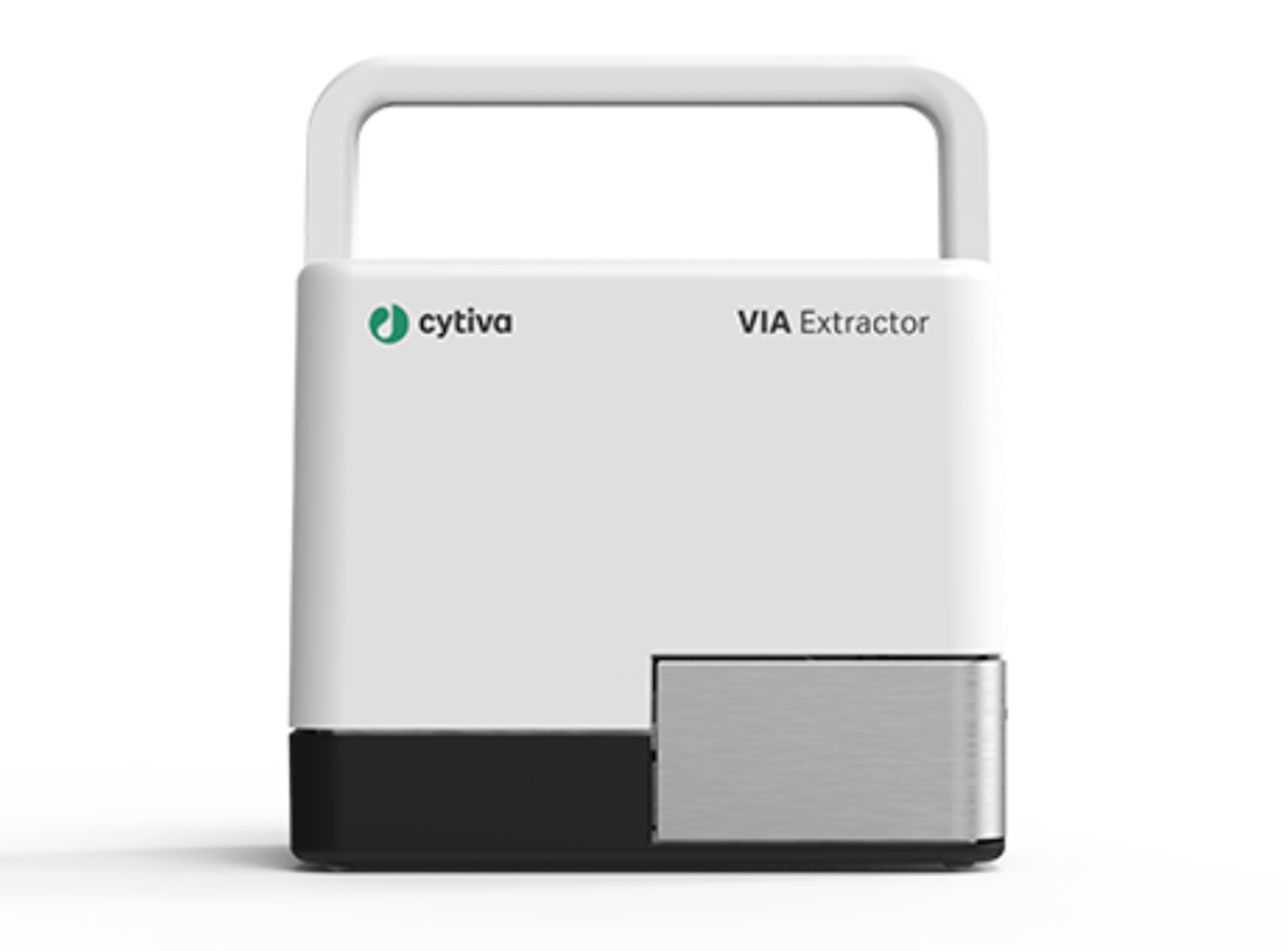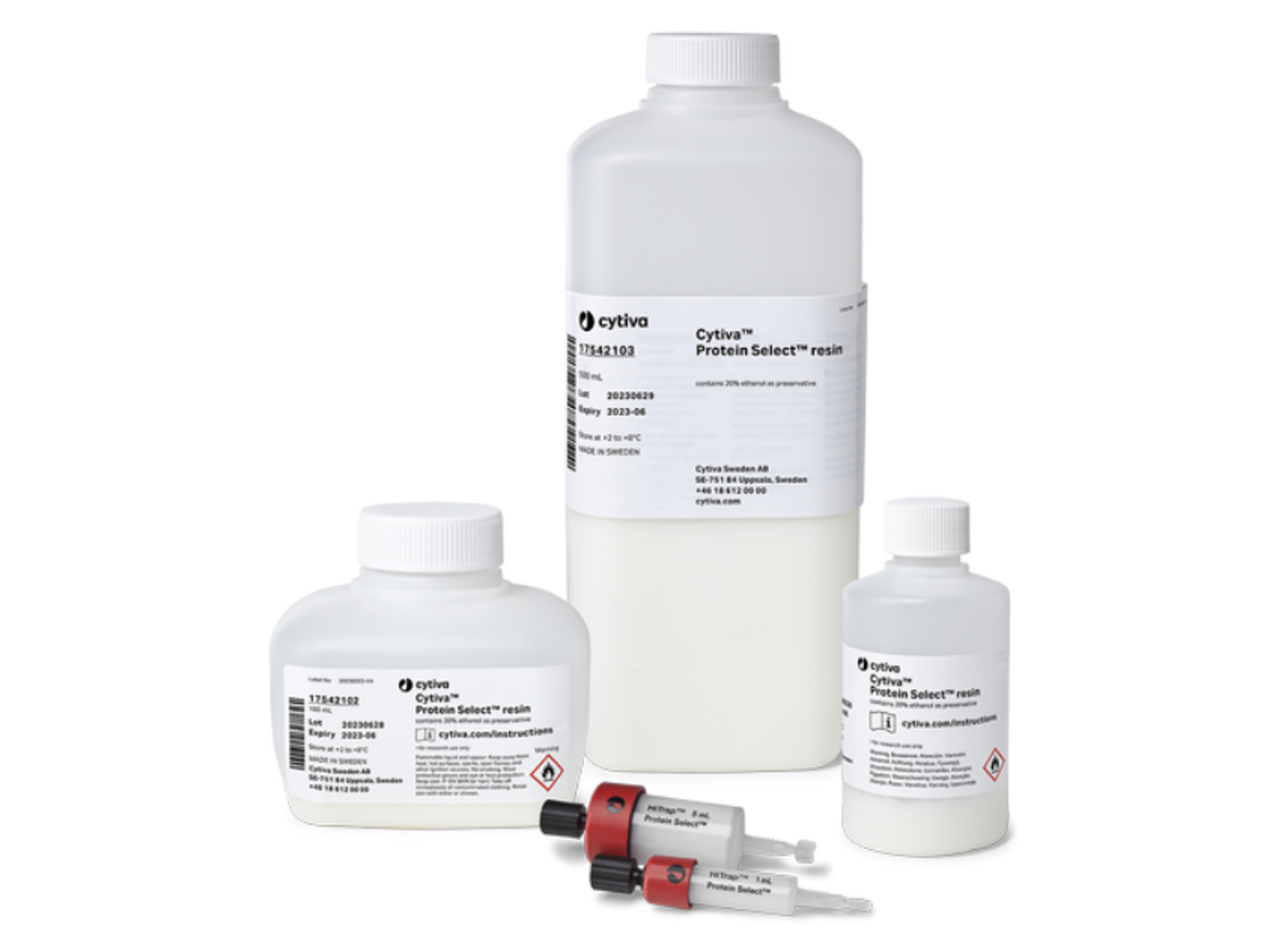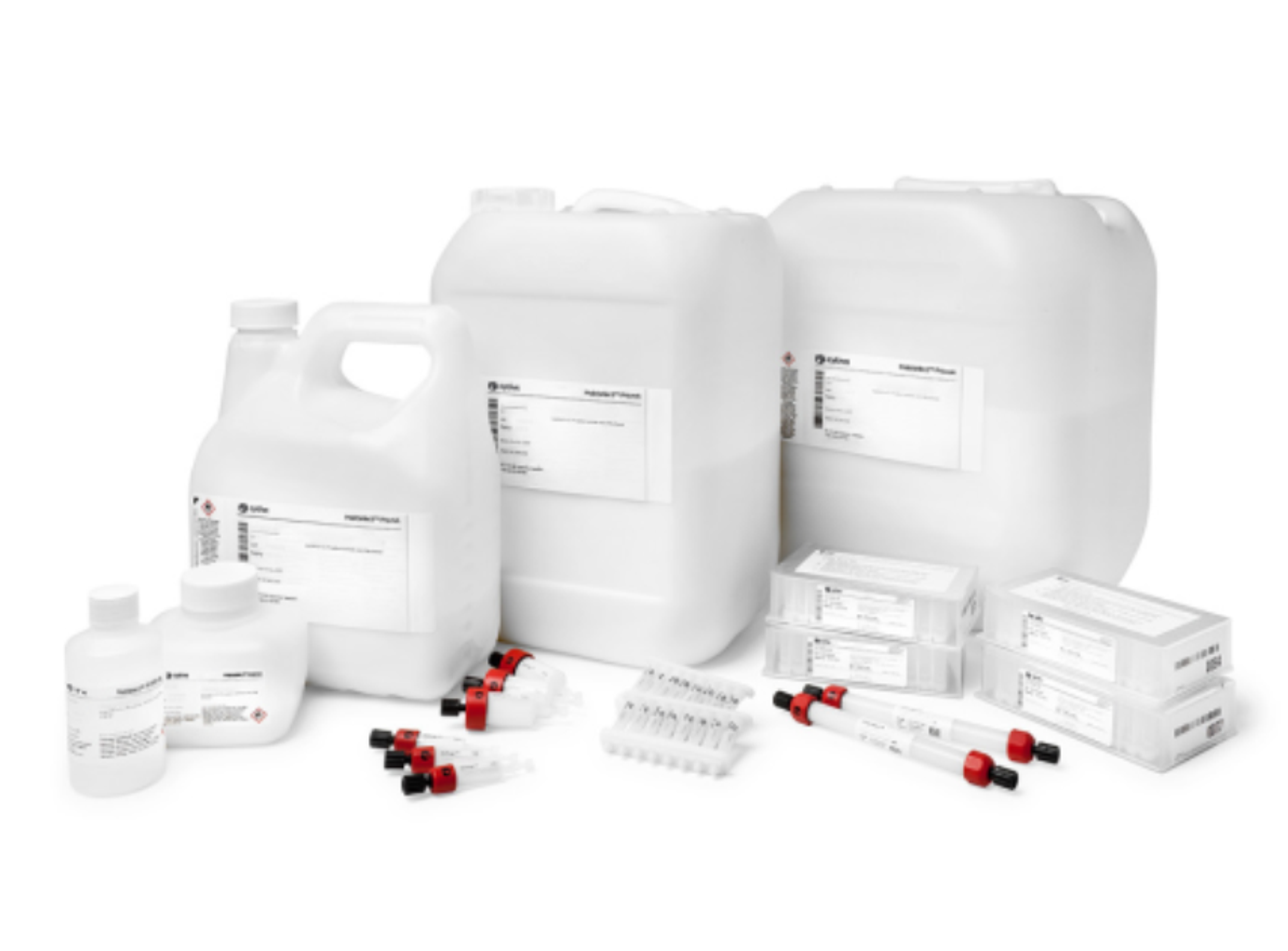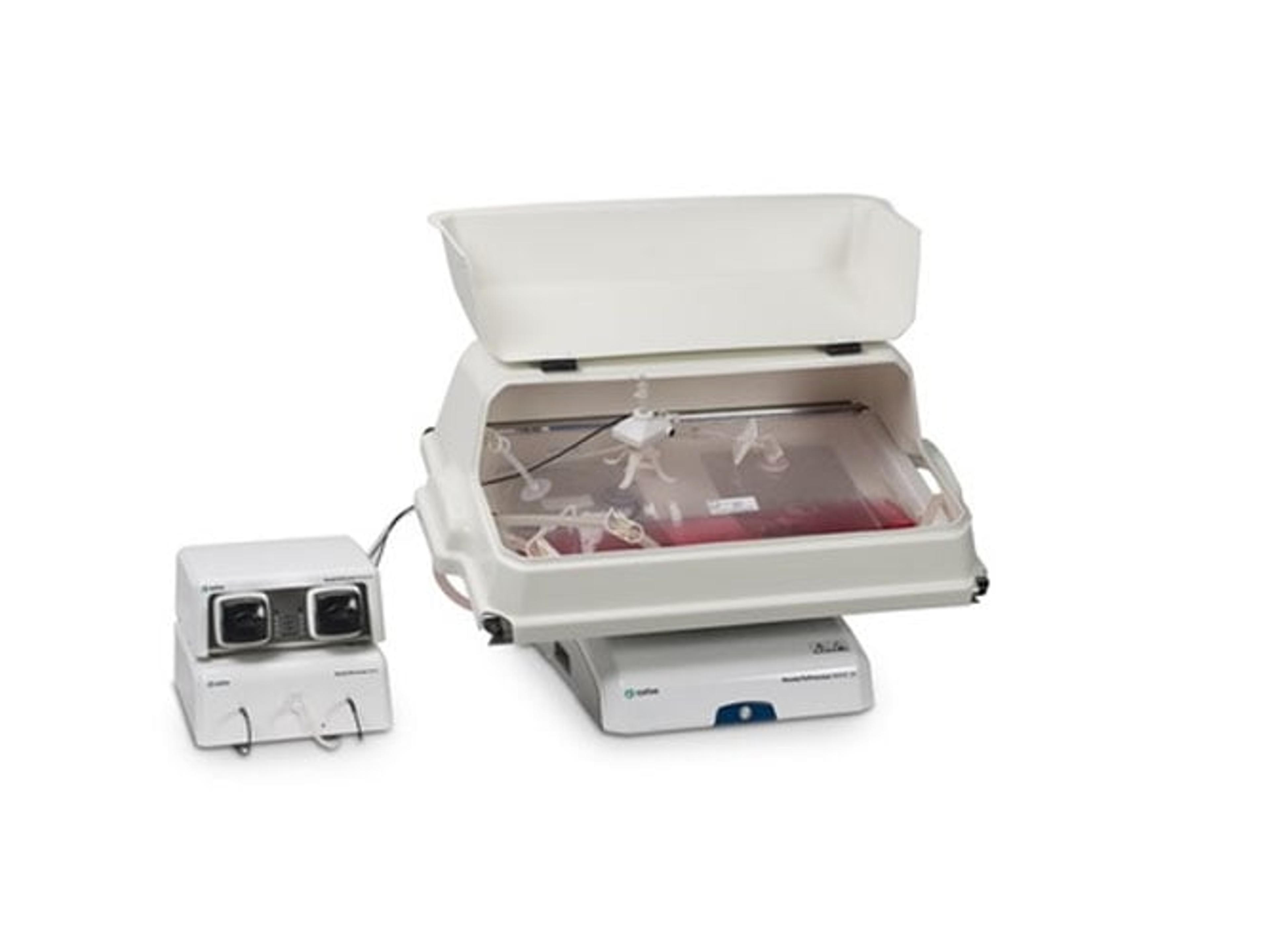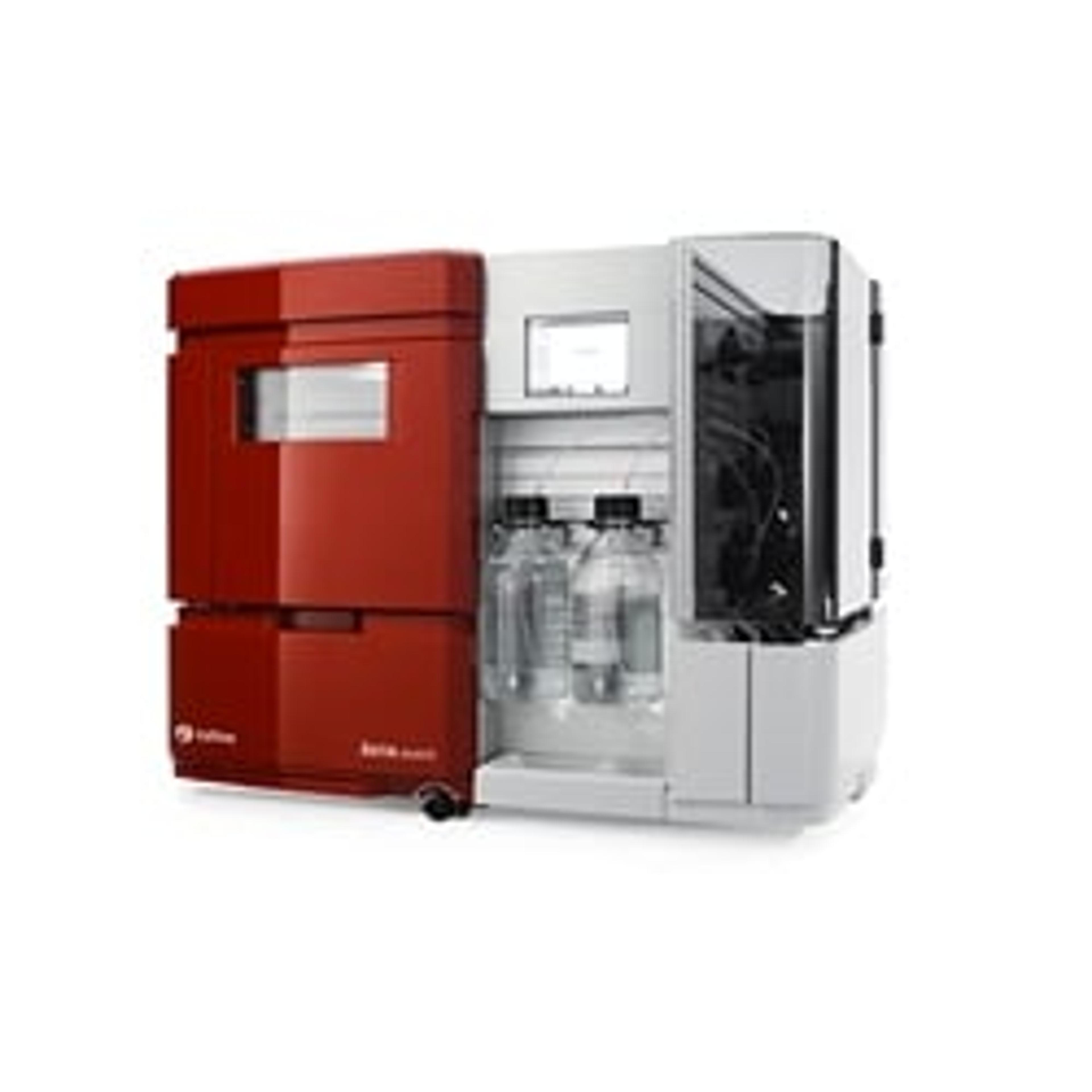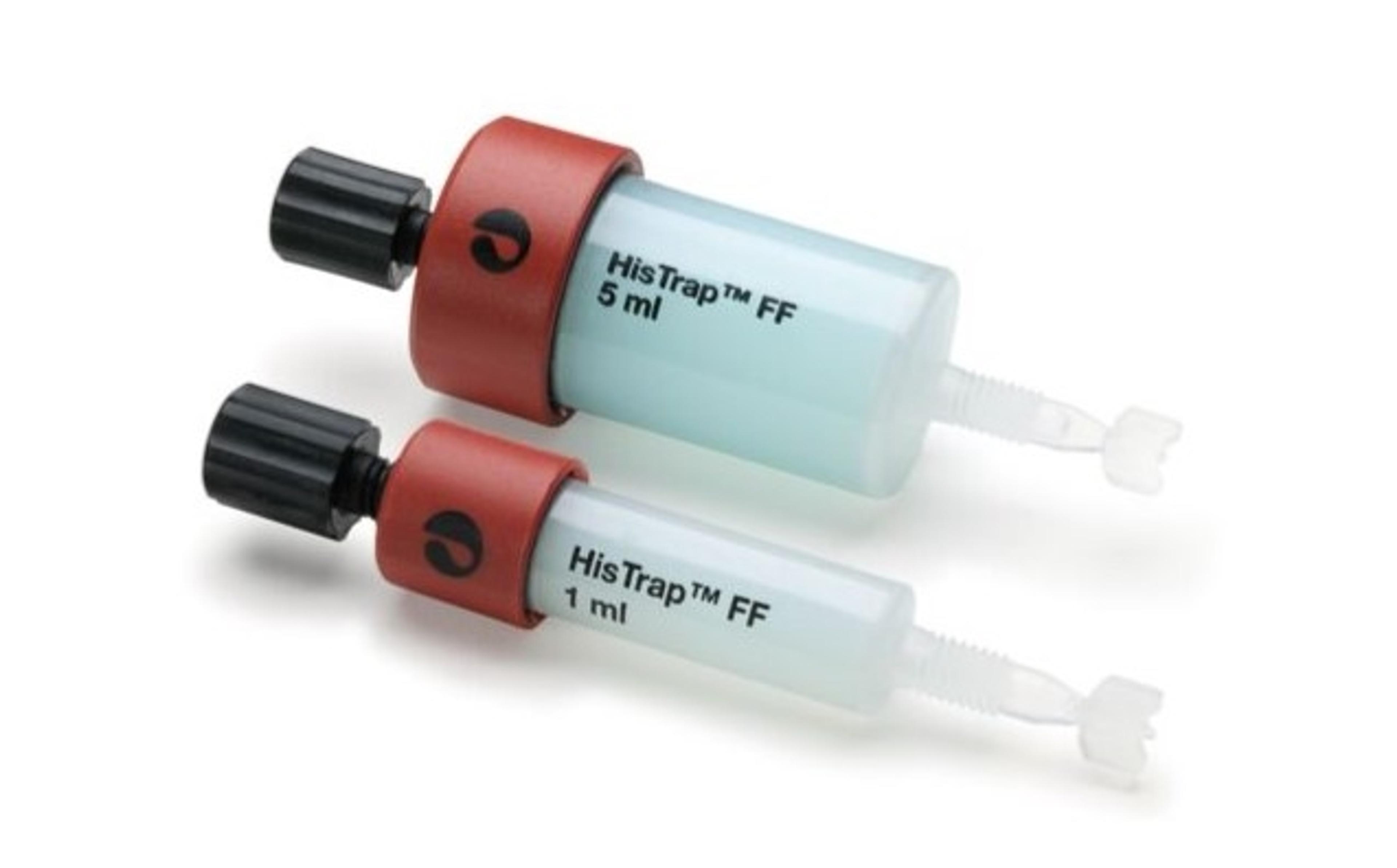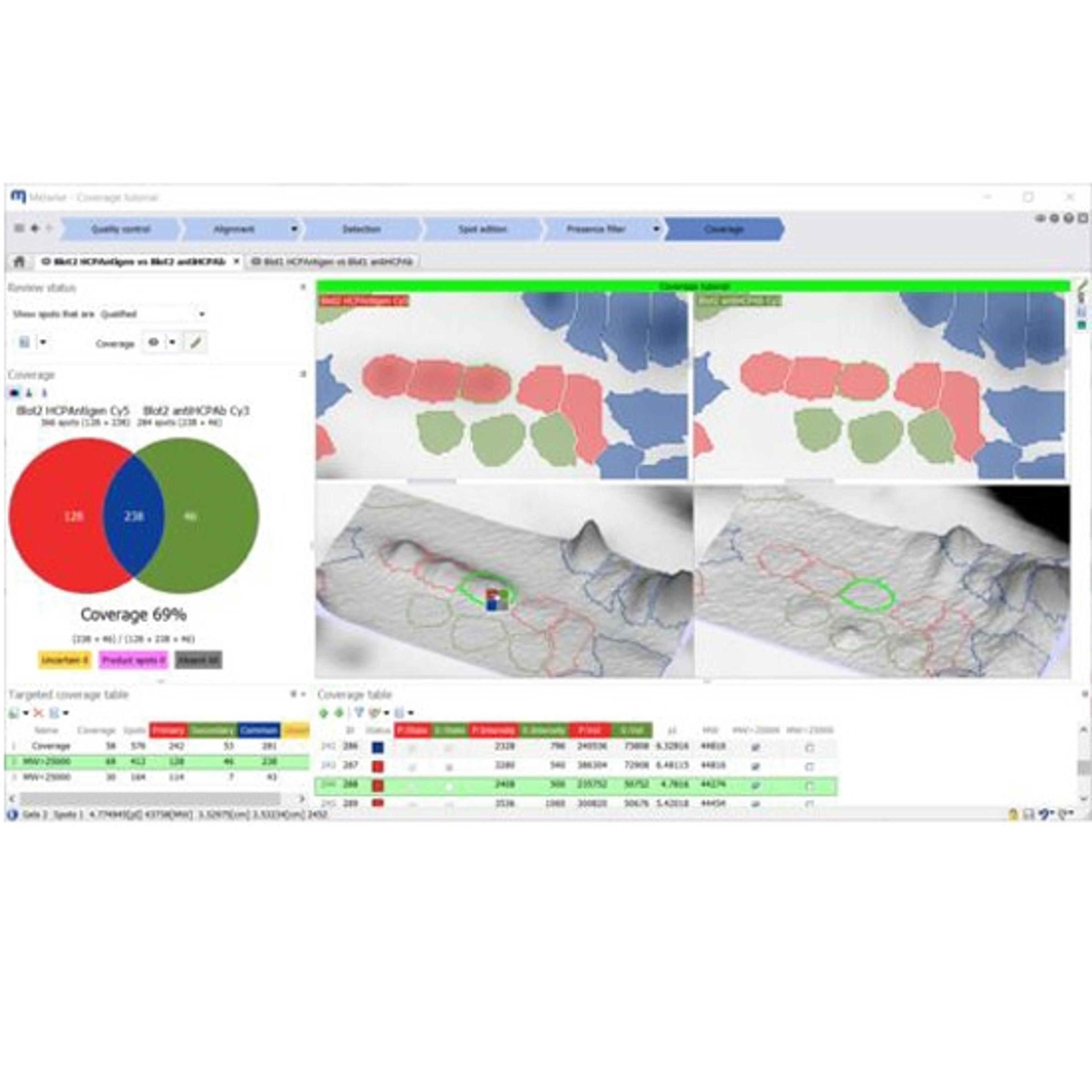MabSelect™ VH3 protein A affinity resin
Protein A chromatography resin for efficient separation of bispecific antibodies, Fab, scFv, and VHH that contain the VH3 sequence family.
MabSelect™ VH3 affinity resin uses an engineered protein A ligand that interacts only with the variable heavy chain of the VH3 sequence family of the human antibody. This allows for efficient separation of bispecific antibodies (bsAb) and fragments, such as fragment antigen-binding region (Fab), single-chain variable fragment (scFv), and variable heavy domain of heavy chain (VHH).
- High binding capacity for bispecific antibodies and antibody fragments containing the VH3 sequence family.
- Provides good resolution for product-related impurities in the capture of bispecific antibodies.
- Excellent alkaline stability; stable when cleaned with 0.5 M NaOH, minimizing risk for bioburden incidents and providing a long resin lifetime.
- A single interaction with the Fab VH3 region is beneficial over a dual-interaction affinity ligand, as separation of unwanted mispaired antibodies and fragments from target bsAb may be more efficient.
MabSelect™ VH3 chromatography resin in different formats
To support process development, manufacturing, and research, MabSelect™ VH3 resin is available in 25 mL, 200 mL, 1 L, 5L, and 10 L containers. The resin can also be ordered in prepacked formats such as HiTrap™ columns, HiScreen™ columns, PreDictor™ plates, and ReadyToProcess™ columns. Contact us to learn more.
Engineered for specific VH3 interaction
The ligand of MabSelect™ VH3 resin has been engineered to have affinity only for the variable region of the VH3 heavy chain. Traditional protein A resins have affinity for both the Fc region and the Fab VH3 region of human antibodies. In the ligand used in the MabSelect™ VH3 resin, the Fc interaction has been knocked out, and VH3 interaction has been enhanced. In bioprocessing, an affinity ligand with a single interaction with the Fab VH3 region is beneficial over a dual-interaction affinity ligand, as separation of unwanted mispaired antibodies and fragments from the target bispecific antibody (bsAb) may be more efficient. The VH3 sequence family is the most common VH class for antibodies in commercialized biologics.
Efficient separation of bsAb and antibody fragments
High dynamic binding capacity (DBC) allows high mass throughput of processed antibody per resin volume unit. It also provides productivity and process economy benefits. For a typical mAb (with VH3 sequence), MabSelect™ VH3 resin shows similar binding capacity as MabSelect PrismA™ resin. MabSelect™ VH3 resin showed significantly higher (70%) binding capacity for Fab compared to MabSelect PrismA™ resin. For VHH, MabSelect™ VH3 resin showed a higher (11%-14%) DBC compared to MabSelect PrismA™ resin.
Asymmetric bispecific antibodies can form product-related impurities such as homodimers, half antibodies, and an excess of light chains during cell culture. They are also prone to aggregation. The similarities between these impurities present extra challenges for downstream processes, especially post-capture. MabSelect™ VH3 resin and its novel selectivity enables separation in the capture step of asymmetric bispecific antibodies, where only one of the heavy chains includes the VH3 sequence family, from product-related entities.
Robust resin designed for harsh cleaning over many cycles
The alkaline stability of the MabSelect™ VH3 resin was evaluated in an accelerated alkaline stability study and in a repeated CIP cycling study with 0.5 M NaOH. The resin showed excellent alkaline stability when cleaned with 0.5 M NaOH.
Resin toolbox for the diversified antibody pipeline
Manufacturing platform approaches used for many traditional monoclonal antibodies (mAbs) are being adapted to fit respective antibody variant molecules. To provide the required purity and yield, a chromatography resin must be selected based on the domains of the target molecule, the impurity profile, and the antibody regions that the resin interacts with. Explore Cytiva's range of high-flow, modern affinity resins, including MabSelect™ VH3 resin, MabSelect PrismA™ resin, MabSelect™ VL resin, and Capto™ polishing resins.

